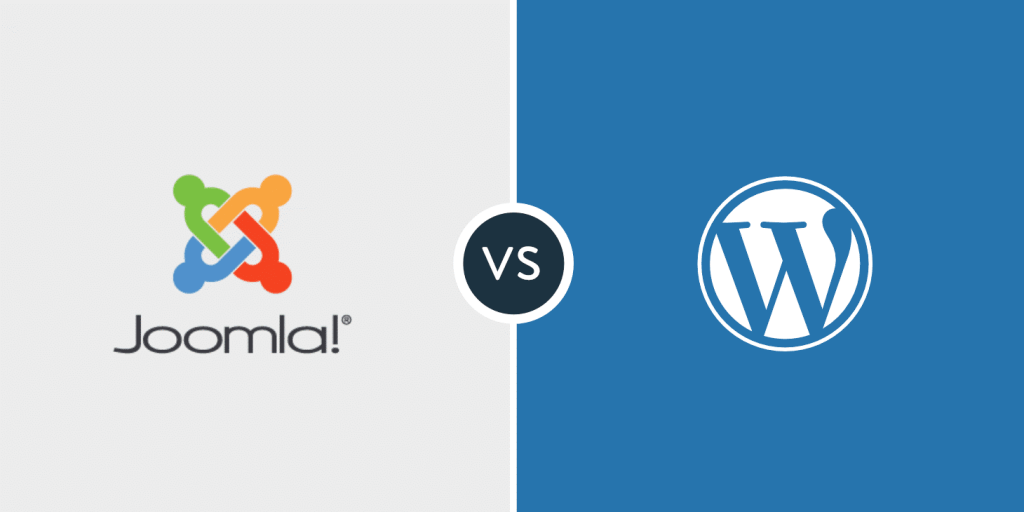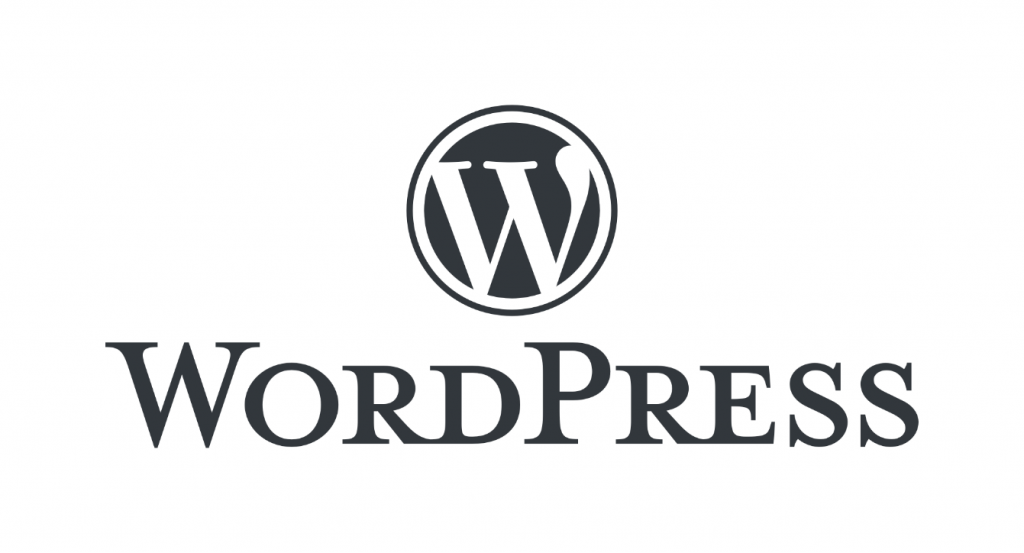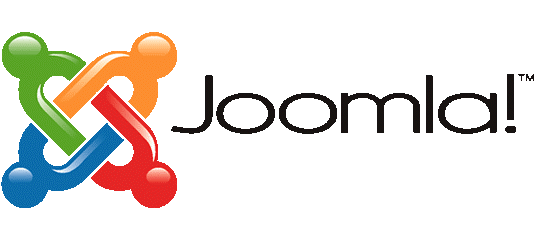WordPress or Joomla? Subjectively about popular CMS systems

Table of Contents
- CMS WordPress
- CMS Joomla
- What services can we build in particular CMS systems?
- Support
- Templates, themes
- Summary
- Advantages and disadvantages – in our opinion
CMS WordPress

Who uses WordPress? And who does not use it? The one that uses e.g. Joomla. It was created in 2005 and its name in Swahili means “together” (and apparently it is not changed, but everyone does it). It was named so because it was designed as a CMS system for communities and web portals. We can’t master Joomla, we need some time to figure it out. However, if our goal is to work with communities, it will be a good choice thanks to the user management system. Joomla will also be useful when building more advanced websites, especially multimedia ones.
After starting – interface
WordPress is simple (although Instagram simpler :). When you launch it, you can quickly figure out what’s going on. Of course, you need to take a moment to become proficient in this CMS, but its usability is at a high level. Another advantage is that when we buy hosting, we can easily install WordPress (although Joomla often). So one click and we start. Updates on the home page will remind us of updates, plugins can be found directly from the CMS, and the media is managed very conveniently. If anyone has a problem, however, we will find hundreds of pages and hours of video with tutorials on every WordPress topic. In addition, as we have already mentioned, if it is difficult to do something in WordPress, there will probably be a plugin that will take care of us.
CMS Joomla

What services can we build in particular CMS systems?
For WordPress and Joomla, driving without tuning is half the fun. Modifying systems allows you to get the most out of their CMS. WordPress itself boasts an ecosystem of 50,000 plugins, of which many (at least in the basic version) are free. For example, the multilingualism offered basically by Joomla will be obtained through plugins, which often have extensive personalization options. For this, we will find plugins that will help us modify CSS, without even knowing a line of code, or optimizing SEO. In such a flock of plug-in sheep, unfortunately, there are also black ones. Hackers sometimes use plugins to hack websites. However, by choosing the popular ones, we minimize the risk.
WordPress can, therefore, remain a blog or transform into a business card page. All you need is a little bit of trouble and it will become a multilingual website or intermediate internet store. The possibilities of this CMS are not limitless.
Joomla! Comes to the rescue here. It is a system that can be expanded almost without end. We’ll do the most with him knowing the basics of PHP, but the number of plugins (or “extensions”) is very high. The downside is that the most useful ones are paid.
Despite this, very advanced websites can be created in Joomla. This CMS chose Peugeot, for example, which shows how complex and professional websites can be created in it. Thanks to the excellent addition DJ-Catalog2 we will create an online store more advanced than WooCommerce. Joomla works great for e-learning, community service or running e-offices, a library or a collection of documents. CMS can easily handle corporate websites (including intranets) that require a large number of modules and support for a large number of users.
It is worth mentioning that in both cases we can create our own extensions. Of course, thanks to this there are so many of them. However, this is a slightly higher driving school.
Support
In both cases, the largest support is the huge user community. We can look for solutions to our problems in forums and talk about expansion options at conferences such as WordCamp or JoomlaDay. It is difficult to find a problem that could not be solved by asking the community for help. There are tens of thousands of threads on the forums of both sites.
Of course, the best solution is to work with a specialist in a given CMS system, which will not only quickly solve the problem, saving our time, but also will have programming skills. Thanks to this, we can not only solve embarrassing situations but also develop website capabilities. In the context of the mentioned creation of your own extensions, this may be a good option.
Templates, themes
Both in WordPress and in Joomla we have the opportunity to buy themes that will allow us to create a website more easily. The theme does not only mean personalizing the appearance of our website, it is a complete solution with ready architecture. It should be added that there are also many free themes that can be customized using free plugins and have a website completely free. However, this requires slightly more skill.
Themes contain functions such as responsiveness, i.e. adapting the website to mobile devices. We also get a lot of purchased themes with paid plugins, such as WPBakery Page Builder (for WordPress), enabling the construction of a website through intuitive drag & drop. They also have built-in functions, e.g. font changes or ready variants of the site’s appearance, so that we can quickly create, for example, a simple business card page.
Experts from both CMS systems usually build websites based on basic, free themes, their own themes targeted at a specific client. This allows you to include only (or as many as) functions that are needed for a given project. Thanks to this, website management is simpler for the client and the website is equipped with all necessary functionalities. The purchased theme will never be made “under us”.
Summary
The possibility of expansion is important in choosing a CMS system. Here in Joomla imagination limits us and in WordPress … WordPress itself. However, it can be an advantage, because the latter is easier to use and we will quickly build a simple page on it (and also expand it to intermediate). At the same time, administrators and editors of the website, for example, our employees or clients, maybe a bit easier to handle WordPress than Joomla. However, this one has incredible expansion options and you can use it to create a very advanced website, which at the same time will not be particularly difficult to use.
Visit buyinstagramfollowers.uk for your social media needs…
Around both CMS systems there is a huge community of users and programmers who create new plugins and themes and are ready to help in trouble. We will not be left alone. All this means that instead of browsing the list of dozens of available CMSs, it’s worth betting on the giants. It is an opportunity to develop the website and receive support. In addition, we will have a large number of specialists and companies that will create or expand our website as needed.
And you? How do you rate both CMS systems? WordPress or Joomla?
Advantages and disadvantages – in our opinion
WORDPRESS
Strengths:
- Intuitive operation
- Lots of plugins
- Huge community
- Perfect for simple websites
- A large number of templates
- Easy update
Weaknesses:
- Less expansion options
- Complicated navigation for advanced services
- Security issues
JOOMLA
Strengths:
- Unlimited expansion options
- Active and large community
- Great user service
- Ideal for complex websites (e-learning, communities, websites, etc.)
Weaknesses:
- Many extensions are paid
- Fewer templates
FAQ – Frequently asked questions
1. Joomla or WordPress?
Both Joomla CMS and WordPress have their pros and cons. Joomla allows you to create larger websites, but it is a bit more complicated to use, unlike WordPress, which in turn does not allow you to create complex websites.
2. CMS WordPress – characteristics in a few words
CMS WordPress is the most used content management system in all over the world. It is easy to use but has some disadvantages when it comes to creating highly developed websites. Works great as a positioning CMS.
3. CMS Joomla – characteristics in a few words
It is one of the most popular CMS systems in the world. Based on the Joomla system, you can create very extensive websites. However, this system is not the first choice of developers due to the relatively complicated service.



